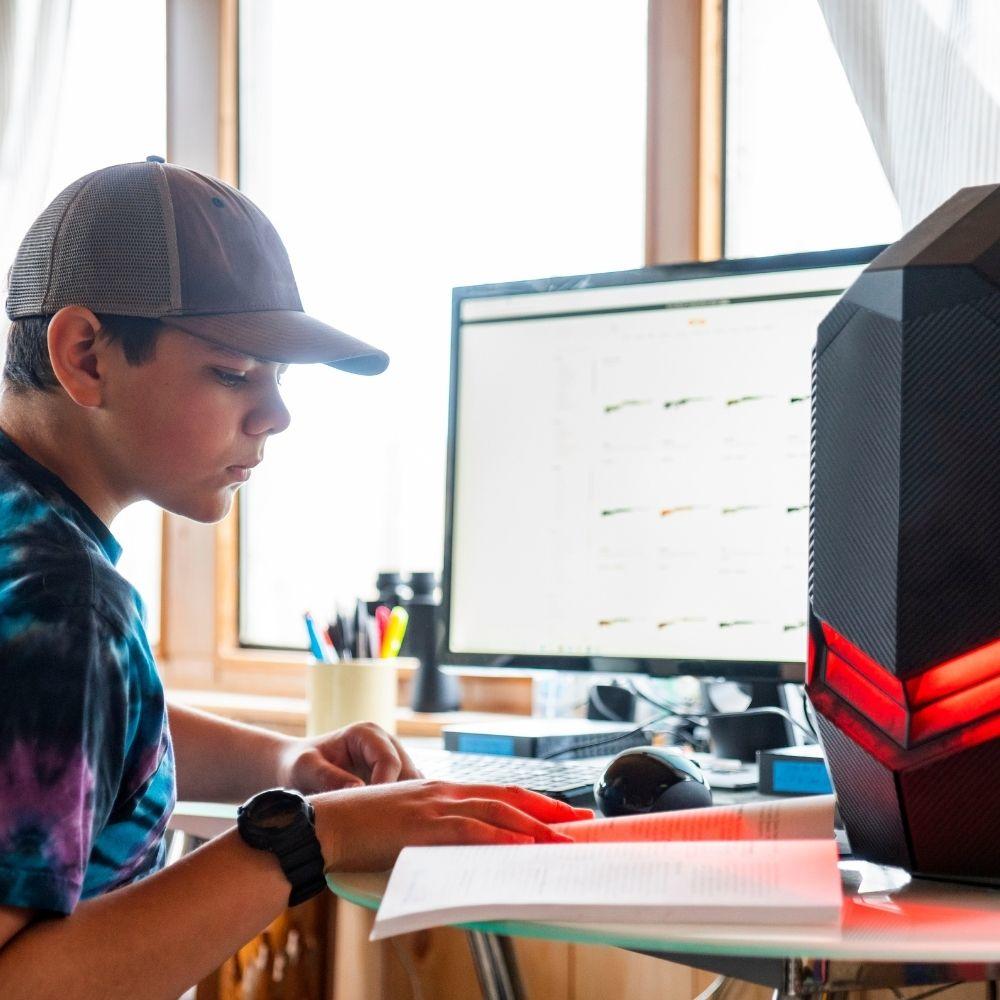Understanding what subjects you should take in high school can be difficult. It can seem like a good idea to take the "easiest" subjects, but we need to think long term. Planning your NCEA courses early doesn’t mean that they’re set in stone.
One of the critical things to remember with the NCEA system is that you can study at different levels, giving you increased flexibility in how and what you study. So, how much maths do you need and what options are there?
Look out for the tips and tricks for a complete guide to NCEA maths here.


I Just Want To Pass NCEA Maths!
Starting with the basics, NCEA is the “National Certificates of Educational Achievement” run by the New Zealand Qualifications Authority (NZQA) administered. The NCEA system can be confusing to understand because there isn’t one ‘Maths’ or ‘English’ subject to take to ‘pass’ NCEA. Instead, each subject is broken down into different levels, standards and credits.
NCEA certification is broken down into Level 1, Level 2, and Level 3, with level 1 being loosely equivalent to the old School C, Level 2 being 6th Form Cert and Level 3 being Bursaries (UE). This is similar to the way you can take multiple papers at different levels to gain tertiary qualifications.
Minimum numeracy requirements in the NCEA Maths Syllabus
There is a lot of flexibility about which subjects to take in high school; however, there is a core requirement. Without achieving a minimum of 10 credits in numeracy and literacy subjects, you cannot gain your NCEA. With this, the NZQA is trying to ensure that everyone leaving school has a clear ability to communicate, problem-solve and function in society,
However, to make it even more confusing, some units can count towards more than one subject! For example, suppose you’re taking Media Studies Level 1 (Unit 90989), “Demonstrate understanding of how individuals interact with the media”. In that case, this can provide credits for both your numeracy AND literacy requirements.

I have a fear of Maths; how will I pass the NCEA maths exams?
Most people who think they’re not good at maths are generally simply lacking in confidence – and the easiest way to build up self-confidence is practice. Tedious as it sounds, going over the basic information and ensuring that you have a solid foundation will show results.
Learning maths in a safe environment
No matter what level of maths understanding you have, you can work with your teacher, peers, or a tutor to find the best way to master the subjects you need. For some people, maths learning takes off when you have a real-world practical application.
In fact, Stuff recently published an article showing how Downer (the huge construction firm) started teaching basic literacy and numeracy as part of their work plan for all crew and saw a huge productivity improvement.
Stuck understanding trig? Think about the angles required to get certain pool shots. Stats driving you nuts? Try setting up a free Virtual Trading account on the NZSX and use the knowledge your teachers are trying to impart to predict stock trades.
Find a passionate tutor to help with NCEA Maths Revision
Engaging a tutor who has knowledge of maths is one of the best ways to get on the right path. Even better is being able to work with a tutor who can work your way. Whether this means someone who will lie on the floor with you while you work out how to find x, or a tutor who can find ways to excite your desire to learn. Maths is anything but boring, and a tutor like those on Superprof who is passionate about sharing their favourite topic can prove that to you.


Understanding Your Pathway on the NCEA Maths Syllabus
One of the advantages of the NCEA maths syllabus is that there isn’t one set pathway to achieve your goals anymore. You can complete the required credits but maintain a focus on the areas that interest you, which might lead to further education or employment in a field you want to be in.
Remembering that although you need to complete a certain number of credits at each level, you don’t necessarily need to focus on just one specific area. You also don’t need to stay at one level. You have discovered that a Level 1 unit will provide you with the skills and knowledge you want? You can add that Level 1 unit to your course, even if all your other units are Level 3.
Have a look through this random selection of units. It is only a small number of the units available where you can earn maths credits:
Level 1 NCEA Units
| Subject | Title |
|---|---|
| Agricultural & Horticultural Science | Carry out a practical agricultural or horticultural investigation |
| Biology | Carry out a practical investigation in a biological context, with direction |
| Chemistry | Carry out a practical chemistry investigation, with direction |
| Physics | Demonstrate understanding of aspects of electricity & magnetism |
| Science | Investigate the implication of heat in everyday life |
| Media Studies | Demonstrate an understanding of how individuals interact with the media |
| Geography | Conduct geographic research, with direction |
| Mathematics & Statistics | Apply numeric reasoning in solving problems |
| Apply measurement in solving problems | |
| Apply geometric reasoning in solving problems | |
| Investigate a situation involving elements of chance | |
| Design & Visual Communication | Produce instrumental, multi-view orthographic drawings that communicate technical features of design ideas |
| Pāngarau | Te whakaoti rangahau pāngarau |
Level 2 NCEA Units
| Subject | Title |
|---|---|
| Business Studies | Conduct market research for a new or existing product |
| Biology | Carry out a practical investigation in a biology context |
| Physics | Demonstrate understanding of mechanics |
| Physics | Demonstrate understanding of electricity & electromagnetism |
| Accounting | Demonstrate an understanding of accounting processing using accounting software |
| Earth & Space Science | Carry out a practical Earth & Space Science investigation |
| Economics | Analyse statistical data relating to contemporary economic issues |
| Geography | Conduct geographic research with guidance |
| Mathematics & Statistics | Apply sequences & series in solving problems |
| Use networks in solving problems | |
| Design a questionnaire | |
| Conduct an experiment to investigate a situation using statistical methods | |
| Agricultural & Horticultural Science | Carry out an extended practical agricultural or horticultural investigation |
| Pāngarau | Te whakahaere rangahau pāngarau |
| Te Reo Rangatira | Te whakarite i te whaituhi roa mō te takenga o te reo Māori |
Level 3 NCEA Units
| Subject | Title |
|---|---|
| Chemistry | Carry out an investigation in chemistry involving quantitative analysis |
| Accounting | Demonstrate understanding of a job cost subsystem for an entity |
| Earth & Space Science | Carry out an independent practical Earth & Space Science investigation |
| Geography | Conduct geographic research with consultation |
| Physical Education | Evaluate the effectiveness of a performance improvement programme |
| Agricultural & Horticultural Science | Carry out an investigation into an aspect of a New Zealand primary product or its production |
| Mathematics & Statistics | Use critical path analysis in solving problems |
| Apply the algebra of complex numbers in solving problems | |
| Evaluate statistically based reports | |
| Biology | Carry out a practical investigation in a biological context, with guidance |

Teens at whiteboard working algebra maths by Lisafx from Getty Images
What Else Should You know About the NCEA Maths Syllabus?
You’ve looked at the units and understood how you could navigate your way through NCEA maths while sticking, mainly, to subjects that interest you, so what else do you need to know?
Grading NCEA
Some units, both within the NCEA maths syllabus and for other subjects, are marked through internal assessment, some use exams, and some use a mixture of methods to gauge your understanding.
However, once your results are in (usually released in January the following year), you will be able to log in online and see your mark. There are four grades you can receive:
Achievement (A) - you have shown a standard level of understanding.
Achievement with Merit (M) – you have shown a deep understanding of the topic.
Achievement with Excellence (E) – you have achieved an exceptional level of understanding.
Not Achieved (N) – you haven’t been able to show the required level of understanding. Don’t panic! You can repeat this unit or replace it with an alternative unit, it’s not the end of the world.
Understanding Grading for NCEA Maths Revision
Aiming for Merit and Excellence is an achievable and worthwhile goal. Particularly if you are looking at attending a university course that is difficult to get in to (in New Zealand or Overseas), the better your grades, the better your options.
Going into each NCEA unit with an idea of what you need to do to achieve Merit and Excellence is easy. You need to go to the NZQA website and check each subject that you are taking.
School class time will provide the knowledge to pass each unit, but knowing how you can focus your revision for a higher grade can ensure that you aren’t wasting time. Suppose you are struggling with a particular area. In that case, you can find extra assistance through school, private tutors, and via the information available on the NZQA website.
Look through the requirements for the achievement level, for example, “use correct mathematical statements”, make sure that you understand what each means and have a strong understanding.
For example, in the unit “Apply numeric reasoning in solving problems”, the achievement levels are marked on:
| Achievement | Achievement with Merit | Achievement with Excellence |
|---|---|---|
| Apply numeric reasoning in solving problems | Apply numeric reasoning, using relational thinking, in solving problems | Apply numeric reasoning, using extended abstract thinking, in solving problems |
| * selecting and using a range of methods in solving problems | * selecting and carrying out a logical sequence of steps | * devising a strategy to investigate or solve a problem |
| * demonstrating knowledge of number concepts and terms | * connecting different concepts and representations | * identifying relevant concepts in context |
| * communicating solutions which would usually require only one or two steps | * demonstrating understanding of concepts | * developing a chain of logical reasoning, or proof |
| * forming and using a model | * forming a generalisation; | |
| * relating findings to a context, or communicating thinking using appropriate mathematical statements. | * use correct mathematical statements | |
| * communicating mathematical insight. | ||
Understanding the syllabus at the level, you are studying will make it easier to focus on the areas that will be tested in the NCEA maths exam. Going into the national levels with a clear focus on the outcome you want to achieve will allow you to build confidence.
While maths is not the only subject you need to pass to obtain your NCEA levels – it is one of the subjects that so many people struggle with. Starting high school with a clear idea of where you are going may seem unknowable when you’re in Year 9.
However, having a vague idea of what you might want to achieve in life gives you power. Even if you need to pivot to adapt to new goals or challenges, understanding what you need to know helps you stay focused.
Summarise with AI:















